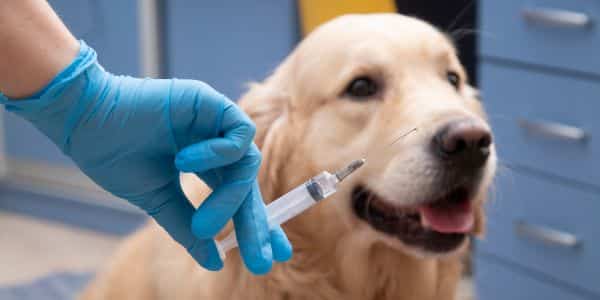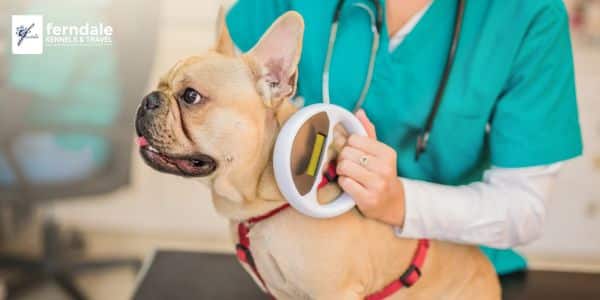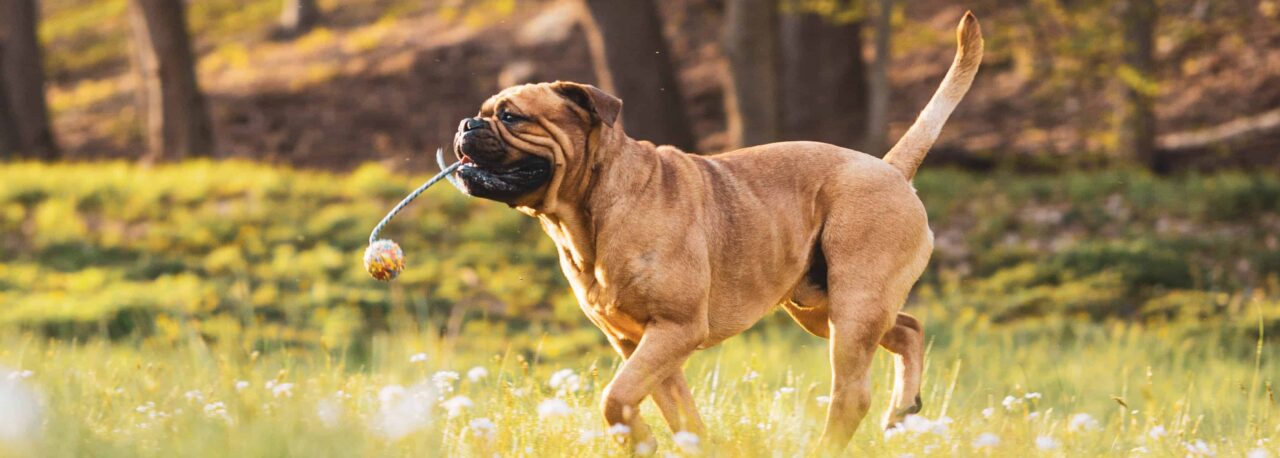Cats and Dogs Relocation & Transport To Ireland
Pet Travel to Ireland
Are you considering a change of scenery and dreaming of relocating your pet to Ireland? The Republic of Ireland, with its breathtaking rolling hills, stunning countryside, warm and welcoming locals, vibrant nightlife, and a wide range of activities to suit every taste, is perfect for your furry companion.
With the increase in dog and cat ownership across Ireland there are now pet-friendly eateries and bars on every corner and people are encouraged to socialise with their pets.
The masses of wide open spaces are also perfect for your pets to run around, explore and play.

Moving to Ireland with My Pet
Bringing your pet along as you relocate to a new country may seem like a daunting task, but the rewards are well worth the effort. Ireland embraces pets with open arms, thanks to its pet-friendly atmosphere and abundance of pet-centric facilities. From pet-friendly activities to restaurants and various outings, the opportunities for you and your four-legged friend to explore and create lasting memories are constantly expanding.
Before you take the plunge and embark on this exciting journey, it’s crucial to be well-prepared to ensure a seamless transition for your beloved pet. Relocating a pet involves careful planning and attention to detail, as it’s not just about moving from one place to another but ensuring your pet’s comfort and well-being throughout the process. By understanding the essential steps and planning ahead, you can help minimize stress for both you and your furry friend. Let’s delve into the essential steps you need to take to ensure a smooth and hassle-free relocation for your beloved pet.

Pet Vaccinations for Ireland
First and foremost, vaccinations are a crucial aspect of pet travel, with rabies vaccination taking precedence. It’s important to note that this vaccination can only be administered once your dog reaches a minimum age of 12 weeks, meaning that you won’t be able to commence your travels before this milestone is met.
Additionally, you must allow sufficient time for immunity to develop after the vaccination, typically around 21 days. If you’re considering bringing a puppy to Ireland, you’ll need to be patient, as they will need to reach the age of at least 5 months before they can embark on their journey.

Rabies Vaccination Update
Apart from rabies vaccination, it’s imperative to ensure that your pet’s other annual vaccinations are up to date-and properly documented. The vaccinations protect dogs from diseases such as distemper, parvovirus, and leptospirosis.
Similarly, cats should have their equivalent vaccinations to safeguard against feline influenza and enteritis. Keeping these vaccinations current will not only ensure your pet’s well-being but also comply with the requirements for travel to Ireland.
Microchipping Your Pet
Another vital measure to consider is microchipping your pet, a highly recommended practice even if you’re not planning to travel abroad. A microchip provides a reliable and permanent means of identification, allowing any veterinarian or authority to trace the owner’s address if your pet were to become lost or separated from you.
To comply with regulations in Ireland, the microchip must adhere to ISO standard 11785, ensuring compatibility with scanning devices within the country. Remember to keep your contact details up to date in the microchip registry, as this will facilitate the safe return of your pet in case of an unfortunate separation.

Obtaining an Animal Health Certificate
When travelling to Ireland, with the exception of Northern Ireland, it is essential to have your pet treated for tapeworm within five days prior to your arrival. This treatment should be recorded and clearly displayed on your Animal Health Certificate (AHC), which serves as the replacement for the now defunct pet passports within the United Kingdom (England, Scotland, Wales, and Northern Ireland) following Brexit.
The Animal Health Certificate is issued by your veterinarian and contains a comprehensive record of your pet’s vaccinations and recent health checks. To ensure compliance, you will need to schedule a full health check for your pet no more than ten days before your travel date. The results of this examination will be documented and signed on your AHC, serving as proof that your pet was in excellent health at the time of travel.

Consequences of Non-Compliance
Non-compliance with the regulations or if your pet fails to meet the necessary compliance checks can result in severe consequences. Upon arrival in Ireland, your pet could be denied entry, which means it won’t be allowed to enter the country and would have to be sent back to its country of origin. Alternatively, your pet could be placed into quarantine under official control. During quarantine, your pet will undergo the required tests or vaccinations, and it will remain in quarantine until it meets all the health and safety standards. In extremely rare and unfortunate cases, if the pet’s health or behavior poses a significant risk, euthanasia might be considered as a last resort. These measures are in place to protect the health and safety of other animals and people in Ireland.
How to Travel to Ireland with a Pet
If you plan to travel by air or sea to an Irish airport or port, it is crucial to contact the relevant airport or port authorities at least 24 hours in advance of your arrival. The earlier you inform them, the better they can prepare to review your documentation and expedite the release of your pet upon arrival.
It’s important to note that only select airports and ports in Ireland accommodate pets due to the necessary facilities and procedures in place.
Therefore, if you’re travelling with a pet, ensure that your flight or boat arrives at one of the following designated locations: Dublin Airport, Dublin Port, Shannon Airport, Cork Airport, Ringaskiddy Port, or Rosslare Europort.

Arrival in Ireland
Upon arrival at your chosen airport or port, your pet will undergo a compliance check to verify the validity of their vaccinations, ensuring they are fit and healthy to travel, and confirming their registration under your ownership. Any discrepancies or inconsistencies in the provided information may result in your pet being denied entry and potentially sent back to its point of origin. To streamline and simplify the international pet travel process, you can seek assistance from our dedicated pet relocation specialists. Our knowledgeable team members possess a deep understanding of the various regulations governing pet travel to different countries, and they can provide invaluable support in compiling the necessary documentation and facilitating your pet’s journey.
Pet Relocation Services To/From Hong Kong and Singapore
Ferndale Kennels is your trusted partner for pet relocation, with offices situated in Hong Kong (China) and Singapore. We facilitate smooth pet relocations to/from Hong Kong and Singapore. Whether you’re moving within Asia or relocating to Europe from Hong Kong or Singapore, our experienced team is ready to support you throughout the entire process. For any questions regarding pet relocation services between Hong Kong, Singapore, and Ireland, feel free to reach out to us.
Using Ferndale Kennels as Your Trusted Pet Relocation Specialist
As you plan your relocation to the captivating landscapes of Ireland, don’t forget to include your furry friend in your adventure. By following the vaccination protocols, microchipping your pet, obtaining the appropriate certifications, and adhering to the designated travel ports, you can ensure a smooth and stress-free journey for both you and your beloved companion. Embrace the opportunity to explore Ireland’s wonders together, creating cherished memories that will last a lifetime.
Click Here For Shipping Enquiry
Frequently Asked Questions
What vaccinations are required for my pet to travel to Ireland?
Your pet must have a rabies vaccination administered after they reach 12 weeks of age. Additionally, it’s crucial to ensure that your pet's annual vaccinations are up to date. Cats should have vaccinations to protect against feline influenza and enteritis.
Is microchipping necessary for pet travel to Ireland?
Yes, microchipping is essential for pet travel to Ireland. The microchip must adhere to ISO standard 11785 to ensure compatibility with scanning devices in the country. It provides a reliable means of identification if your pet gets lost.
What happens during the compliance check upon arrival in Ireland?
Upon arrival, your pet will undergo a compliance check to verify the validity of their vaccinations, overall health, and ownership registration. Any discrepancies may result in your pet being denied entry and potentially sent back to the point of origin.
How can Ferndale Kennels assist with pet relocation to Ireland?
Ferndale Kennels provides expert assistance with the pet relocation process, helping you with microchipping, vaccination, and necessary documentation, ensuring your pet’s smooth journey to Ireland. We also provide door-to-door services to ensure a seamless and stress-free experience for both you and your pet.


